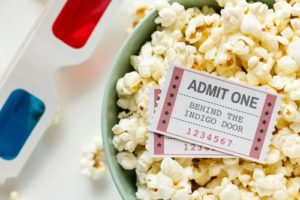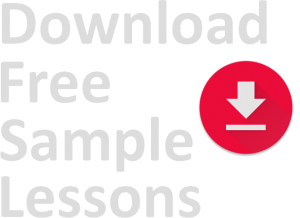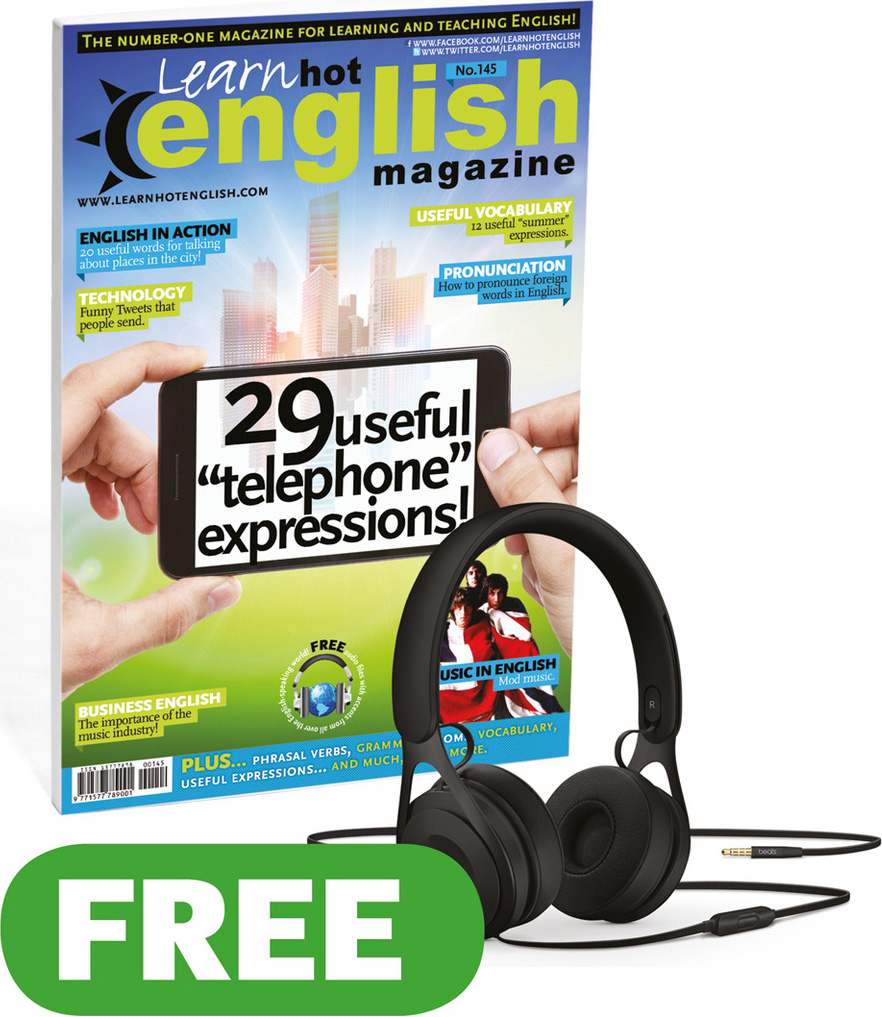4 reasons why you should learn English slang!
Slang is an important part of English. It’s used a lot in native-speaker conversations, and appears in films, songs and TV shows. Here are four reasons why you should learn English slang*.
Native English speakers & slang
If you want to interact with native English speakers, you’ll need to be familiar with a lot of slang terms. For example, you may have learnt the expression “How are you?” but in informal situations, English-speakers would use something like “How’s it going?”

Slang in films & TV
Slang terms appear in a lot in films and TV shows, even in fairly mainstream ones. Here are just a few of the many slang expressions you can hear in an episode of Friends (The One With the Monkey) from season one:
- a) You wanna say hi? = Do you want to say hello?
- b) Hey, Joey. Hey, buddy! = Hello, Joey. Hello, my friend.
- c) So, how’d it go? = How did it go? / How was it?
- d) I dunno. = I don’t know.

Slang in music
There’s a lot of slang in songs too. You’ll find common terms such as “wanna” (want to) or “gonna” (going to) in most songs, but lots of other slang expressions too. For example, in the Dire Straits song The Sultans of Swing, there’s the line, “He’s got a daytime job, he’s doin’ alright” where they’ve used the expression “He’s doin’ alright”, which means, “Things are going well for him.”
In other songs, you’ll find some more obscure terms. For example, rapper MC Hammer uses terms such as “kicks” for sneakers and “ghetto bird” for “police helicopter”, although they’re both terms that you could probably work out the meaning of if you thought about them a bit.
Fun & funny slang
Finally, slang is a fun, visual, playful, exciting and interesting form of language. And some slang expressions are even quite funny. For example:
- a) He’s as thick as two planks. = He’s really stupid.
- b) I wouldn’t trust her as far as I could spit. = I don’t trust her at all.
- c) He’s as graceful as a pig on ice = He isn’t very graceful.
So, what’s the best way to learn English slang? Simple! Listen to songs and native speaker conversations, and watch films and TV shows. Sitcoms are the best as there’s usually a lot of dialogue. Shows to watch could include The Simpsons, South Park, Friends, The Sopranos and Seinfeld.

Finally, what’s the best way to learn slang terms? Well, when you come across an expression you aren’t sure of, don’t panic! Remember, slang terms in any language are used to express the same basic emotions of excitement, joy, fear, disgust and anger. So, the best thing is to try to guess what the speaker is saying. Simply stop, think, use your imagination and think about the context and the topic. Also, look for any facial expressions, gestures and reactions from the other speakers.
For example,
imagine you ask someone what they thought of a film and they say, “It was wicked!” Now, you may know that “wicked” means “evil” and “bad”, but if you see that you’re friend is smiling and looking enthusiastic, you’ll soon realise that “wicked” means “good”!
There’s nothing complicated or mystical about slang terms. They’re basically common words that are used in a fun, imaginative way. And if you really want to improve your English, you should learn a few of them!
Catch ya later!
*Slang
What is slang? Very basically, slang is informal language that’s often used in conversational English. Of course, there are different types of slang ranging from words that are understood more or less all over the English-speaking world, to more obscure terms that are only used in a particular area or region; and mild terms that can be used in most informal situations, to extremely offensive ones that are hardly ever appropriate.
Glossary
to interact vb
if two or more people “interact”, they talk to one another
mainstream adj
“mainstream” programmes (for example) are the most typical and popular TV programmes that people watch
obscure adj
an “obscure” word is only known by a few people
a sneaker n
US a shoe for doing sport (running, playing football / basketball, etc.). “Trainers” in British English
to work out phr vb
if you “work out” the meaning of a word, you understand what it means
a plank n
literally, a “plank” is a long, flat, rectangular piece of wood
to trust vb
if you “trust” someone, you believe that they are honest and truthful
to spit vb
to force liquid out of your mouth
graceful adj
someone who is “graceful” moves in a smooth and controlled way
a sitcom n
a funny television series about the lives of a group of people
a gesture n
a movement you make with a part of your body, often in order to express an emotion
Get your SLANG level supercharged with Learn Hot English




